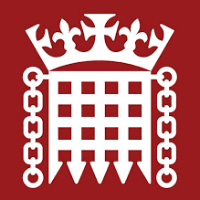 The UK should establish a new ‘Digital Authority’ to co-ordinate the various regulators which oversee the big tech companies, the House of Lords Communications Committee said today, with the release of its ‘Regulating in a Digital World’ report. The committee says that tech companies have so far failed to adequately tackle online harms, and that while the UK has strong and effective regulators, the fact that responsibility for the likes of Google, Facebook and Amazon is split between a number of organisations leaves gaps and overlaps in regulation.
The UK should establish a new ‘Digital Authority’ to co-ordinate the various regulators which oversee the big tech companies, the House of Lords Communications Committee said today, with the release of its ‘Regulating in a Digital World’ report. The committee says that tech companies have so far failed to adequately tackle online harms, and that while the UK has strong and effective regulators, the fact that responsibility for the likes of Google, Facebook and Amazon is split between a number of organisations leaves gaps and overlaps in regulation.
Alongside online harms, the report also cited the sheer size and influence of some tech companies as cause for concern. “The digital world has become dominated by a small number of very large companies,” says the report. “These companies enjoy a substantial advantage, operating with an unprecedented knowledge of users and other businesses. Without intervention the largest tech companies are likely to gain more control of technologies which disseminate media content, extract data from the home and individuals or make decisions affecting people’s lives.”
The chairman of the committee Lord Gilbert explained to VAN that the committee has been looking at new fit-for-purpose approaches to regulation. “It’s not that we’ve got a poor set of regulators, we have highly regarded regulators actually,” he said. “But too often the direction of regulation is in dealing with issues that are arising now, rather than anticipating where technology is going to take us in the future, and building a regulatory framework around it.”
The proposed new authority would be designed to deal with this, coordinating regulators and recommending where additional powers must be granted to fill existing gaps. It would also have a “horizon scanning function” said Lord Gilbert, whereby it would look ahead to upcoming problems in order to make policy recommendations.
The committee also proposed a set of ten principles to shape and frame all regulation of the internet, which would be overseen by the ‘Digital Authority’. The ten principles listed by the report are:
- Parity: there should be the same level of protection online as offline
- Accountability: processes must be in place so that individuals and organisations are held to account for their actions and policies
- Transparency: powerful businesses and organisations operating in the digital world must be open to scrutiny
- Openness: the internet must remain open to innovation and competition
- Privacy: measures should be in place to protect the privacy of individuals
- Ethical design: services must act in the interests of users and society
- Recognition of childhood: the most vulnerable users of the internet should be protected
- Respect for human rights and equality: the freedoms of expression and information online should be protected
- Education and awareness-raising: people should be able to navigate the digital world safely
- Democratic accountability, proportionality and an evidence-based
The report also laid out some specific actions it feels are necessary to hold tech companies to account. They include imposing a duty of care on platforms that host and curate user-generated content, which would be enforced by Ofcom, and hand more power to the Information Commissioner’s Officer (ICO) to audit companies where data breaches might occur.
As with any measures designed to reign in big tech, there is a risk that smaller companies which also have to abide by the rules are punished hardest, since they often lack the resources to invest in the new tech or talent required to comply. And Lord Gilbert said that while the recommendations are clearly geared towards the bigger companies, legislation would apply across the board.
But he believes the new frameworks could be designed to ensure that regulation is handled proportionally. “It could be a scale test when you come to legislation which could be based on the size of the business or the reach of the audience,” said Lord Gilbert. “Any any good regulator will have a sense of proportionality as well when it comes to enforcement”.
The committee’s call for regulation is the latest in a number of calls around the world for governments to do more to hold tech companies to account. Just yesterday US Senator Elizabeth Warren, who has launched a campaign to run for president in 2020, said she would create a new regulator to break up Amazon, Facebook and Google if elected. She also said she would seek to pursue a policy of “platform neturality” to ensure that marketplaces couldn’t be abused in order to favour the products of the platform owner.
Internationally coordinated efforts to regulate tech companies would perhaps be most effective, and Lord Gilbert said that one of the new digital authority’s responsibilities would be to engage with other international bodies, and to continue to work with the EU post-Brexit. “Nonetheless, we don’t accept that these tech companies are too international, too complicated or simply too big to regulate,” he said. “Most of these businesses are very substantial businesses in the UK, we’re not a small market for them.”




